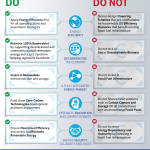European Parliament betrays spirit of Paris Agreement
The European Parliament voted today on its position for the redesign of the EU Emissions Trading Scheme for the coming decade. Instead of scaling up emission cuts beyond what the
The European Parliament voted today on its position for the redesign of the EU Emissions Trading Scheme for the coming decade. Instead of scaling up emission cuts beyond what the
Dear Sir or Madam, I’m writing to you on behalf of Climate Action Network (CAN) Europe ahead of the plenary vote on the Emission Trading Scheme reform on February 15th 2017.
The reform of the EU’s Emissions Trading Scheme (ETS) for the period from 2021-2030 is currently being discussed in the European Parliament and the Council. The following should help you
On 15 February, the European Parliament will vote on the redesign of the Emissions Trading Scheme (ETS) for the coming decade. The Parliament’s decision is the most important political milestone

On February 14th 2017, Members of the European Parliament will vote on their position on the reform of Europe’s main climate policy: EU Emission Trading System (EU ETS). They will decide whether

Here is what CAN Europe argue that the new EU budget 2021-2027 must do and not do to deliver a sustainable and clean Energy Union.
The annual State of the Energy Union report published by the European Commission today shows that the transition of the European economy away from fossil fuels is underway, but its
Ahead of the seminar with civil society organisations on 30 January 2017, CAN Europe together with CEE Bankwatch Network, Counter Balance, Urgewald and WWF European Policy Office sent a briefing
In September 2016 the European Commission published its proposal for the prolongation of the European Fund for Strategic Investments (EFSI) until 2020, to be achieved by amending the existing
In this letter CAN Europe, Transport & Environment, Seas at Risk, Carbon Market Watch and the Aviation Environment Federation urge the European Commission to ensure the aviation and maritime sectors reduce